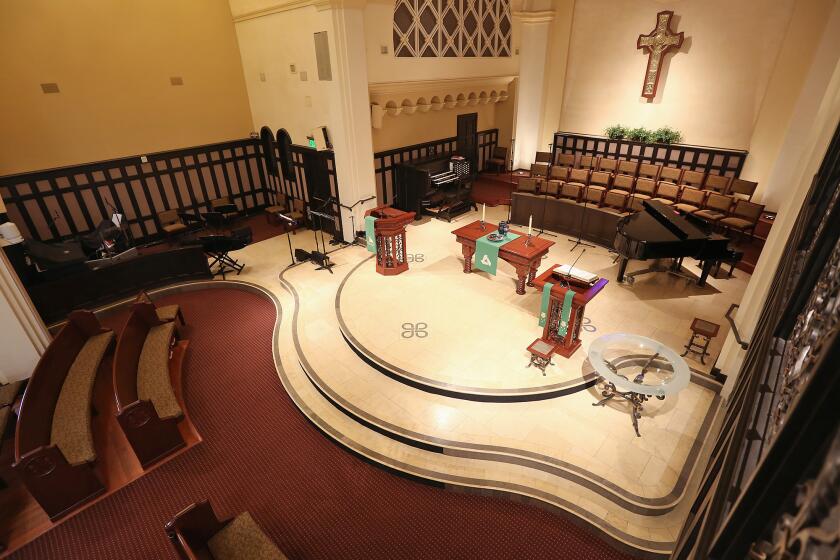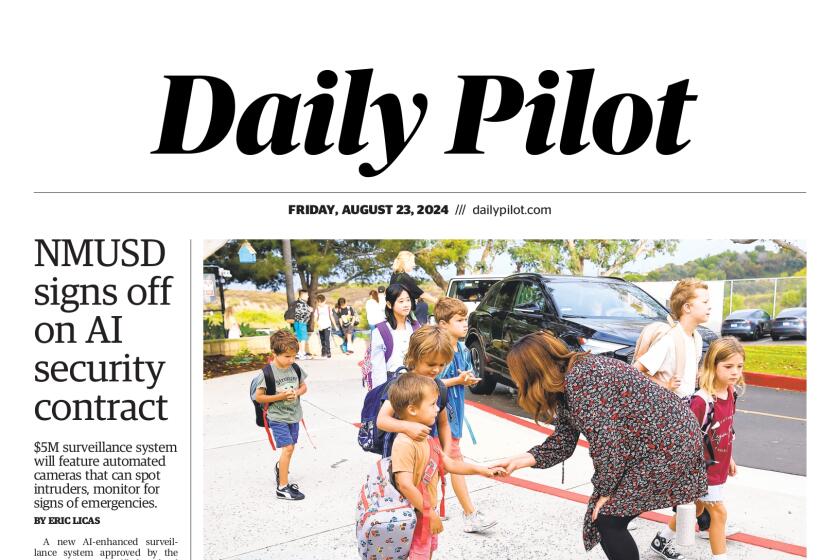In Theory
President Obama this week picked Elena Kagan to replace John Paul Stevens on the U.S. Supreme Court. With the imminent retirement of Stevens, who is a Protestant — and assuming that the Senate’s clears Kagan’s nomination — the high court bench for the first time would have no Protestants on it and would be comprised of six Catholics (Chief Justice John Roberts and Associate Justices Antonin Scalia, Anthony Kennedy, Clarence Thomas, Samuel Alito and Sonia Sotomayor) and three Jews (Associate Justices Ruth Bader Ginsburg, Stephen Breyer and Elena Kagan). Is such a preponderance of one or two religions on the high court healthy for this country or do you think that there should there be a diversity of religious and spiritual views, such as including Hindu, Muslim, Buddhist representation on the bench?
White Anglo-Saxon Protestant men dominated the Supreme Court for most of its history. We can conclude from today’s court that well-qualified people will no longer be excluded because of religion, ethnic background or gender. I am confident that in time there will be a Hindu, Muslim or Buddhist on the bench as well as a Native American, an openly gay justice, a Vietnamese American, and even another Protestant. But as we see from the current roster of Catholic justices, differing judicial theories about how to interpret and apply the Constitution play a bigger role in court decisions than religious affiliation.
The Rev. Dr. Deborah Barrett
Zen Center of Orange County
Costa Mesa
A Supreme Court composed of only Jews and Roman Catholics would be an interesting coincidence, especially in light of the historical American prejudice toward the two.
But it is also an interesting coincidence, and perhaps one that should be troubling, that all would be from only three law schools — Harvard, Yale and Princeton. Perhaps the viewpoints of the justices are more significantly formed by these elite academic institutions and their peer groups than by their religious formation.
Inasmuch as the court has no competence to decide on purely religious matters, the religious identity of the justices should not be a major issue. They should not be chosen on the basis of their religion but of their manifest intelligence, wisdom, prudence, experience and freedom from narrow ideologies.
Msgr. Wilbur Davis
Our Lady Queen of Angels Catholic Church
I have no problem with the makeup of the court relative to its religious composition. We need to select the best legal minds available to us and religion, gender or race should be a secondary consideration. At the same time, we are a country deeply steeped in our unique Anglo-American experience, and I would hope that each member of the court would fully embrace that element. There are flaws in any man-engineered institution, but America’s system of checks and balances is, in my mind, divinely inspired. We are a blessed people!
Tom Thorkelson
Director of Interfaith Relations, Orange County Council
The Church of Jesus Christ of Latter-day Saints
Supreme Court Justices must be superb jurists above all!
That said, as a strong supporter of affirmative action I would like to see as much diversity as possible in our branch of government that must ensure equality. I rejoice to see men and women but wish there were more variety, especially representation for evangelical and nonreligious secularists among us. I am glad there are Ivy Leaguers, but there is equally excellent education in California. I would love to see Dodgers and Angels fans.
Nine people cannot represent all the diversity in our country.
(The Very Rev’d Canon) Peter D. Haynes
Saint Michael & All Angels Episcopal Church
Corona del Mar
I do not think that we should set a goal of religious diversity, as some sort of Politically Correct litmus test. I believe we have allowed politically correct thinking about diversity to do great damage to American institutions already. Supreme Court judges should be chosen based upon their willingness and ability to support, defend, interpret and abide by the Constitution of the United States of America. If they do not believe in the strict and literal interpretation of the Constitution as the bases for our laws, they should not, in my opinion, be considered to sit on the highest court of our land.
Pastor Dwight Tomlinson
Liberty Baptist Church
Newport Beach
So often we assume we can know how a person will rule on hot-bed issues because of their religious beliefs. It is an obvious concern for those who feel strongly about reproductive rights. However, I am less concerned with a justice’s religious affiliation than I am with their moral and ethical views. Quite often I find that the Jewish voice represents me much better than a particular Christian voice, so I am not worried about losing a Protestant. At the same time, I believe that as our country continues to diversity our highest representatives in positions both appointed and elected should reflect the spectrum of religious, ethnic, gender, and even age diversity of the United States.
The Rev. Sarah Halverson
Fairview Community Church
Costa Mesa
I think that a Supreme Court with a 33% Jewish makeup is perfectly proportionate to a Jewish population that numbers less than 2% of all Americans! Imagine the need to nominate a “token” Protestant for Supreme Court! Was this the Founders’ “Original Intent” — court exclusively populated by Catholics and Jews?
The litmus test for a candidate should be legal acumen, personal integrity, and a commitment to place the interests of America above any religious, racial, ethnic, or gender considerations.
Justices are not to subordinate their jurisprudential philosophy to their Jewish beliefs, Catholic theology, or Protestant faith. They are sworn to uphold the Constitution, not their Bible. Each Justice takes an oath promising to “administer justice without respect to persons, and do equal right to the poor and to the rich, and…faithfully and impartially discharge and perform all the duties incumbent upon me.”
Would that it were so!
Rabbi Mark S. Miller
Temple Bat Yahm
Newport Beach
I know it shouldn’t matter which religion a member of the Supreme Court is, but since the laws of our country are so closely tied to cannon law — or the Greek/Roman/Catholic traditions of law — I find myself slightly suspicious of the mind set of our Supreme Court.
Cannon traditions are highly biased and tend to produce decisions that fit the academic model of what is right according to that social system, i.e. giving corporations the same rights as human beings. But being a student of spiritual laws from other traditions, I think religious diversity on our Supreme Court might be a good idea. To propose we look for a judicial candidate based on his or her religion or “non-traditional opinions” would be like suggesting that we nominate an alien from another planet.
I don’t think anyone would take me seriously, or seriously examine the hidden prejudice of the Cannon traditions that seem so counter-intuitive to good judgment.
Jim Turrell
Center for Spiritual Living
While a variety of backgrounds could prove beneficial, we must remember what the role is of Supreme Court justices.
Their job is not to help people but rather to interpret the law. The president should attempt to select a candidate who knows the law and has the desire to interpret it in a just way. The person’s religion (or lack of it) should not matter.
It should be noted that Catholic Justices are influenced in varying degrees by their faith. Some are influenced more than others by what their religion holds.
It should also be pointed out that the pool of candidates from the Christian and Jewish faiths is larger than the other religions mentioned above, so it stands to reason that a candidate deemed qualified would tend to come out of a Christian or Jewish background.
I am not opposed to a diversity of religions on the bench, so long as the best candidate is selected.
Fr. Stephen Doktorczyk
St. Joachim Church
Costa Mesa
All the latest on Orange County from Orange County.
Get our free TimesOC newsletter.
You may occasionally receive promotional content from the Daily Pilot.



